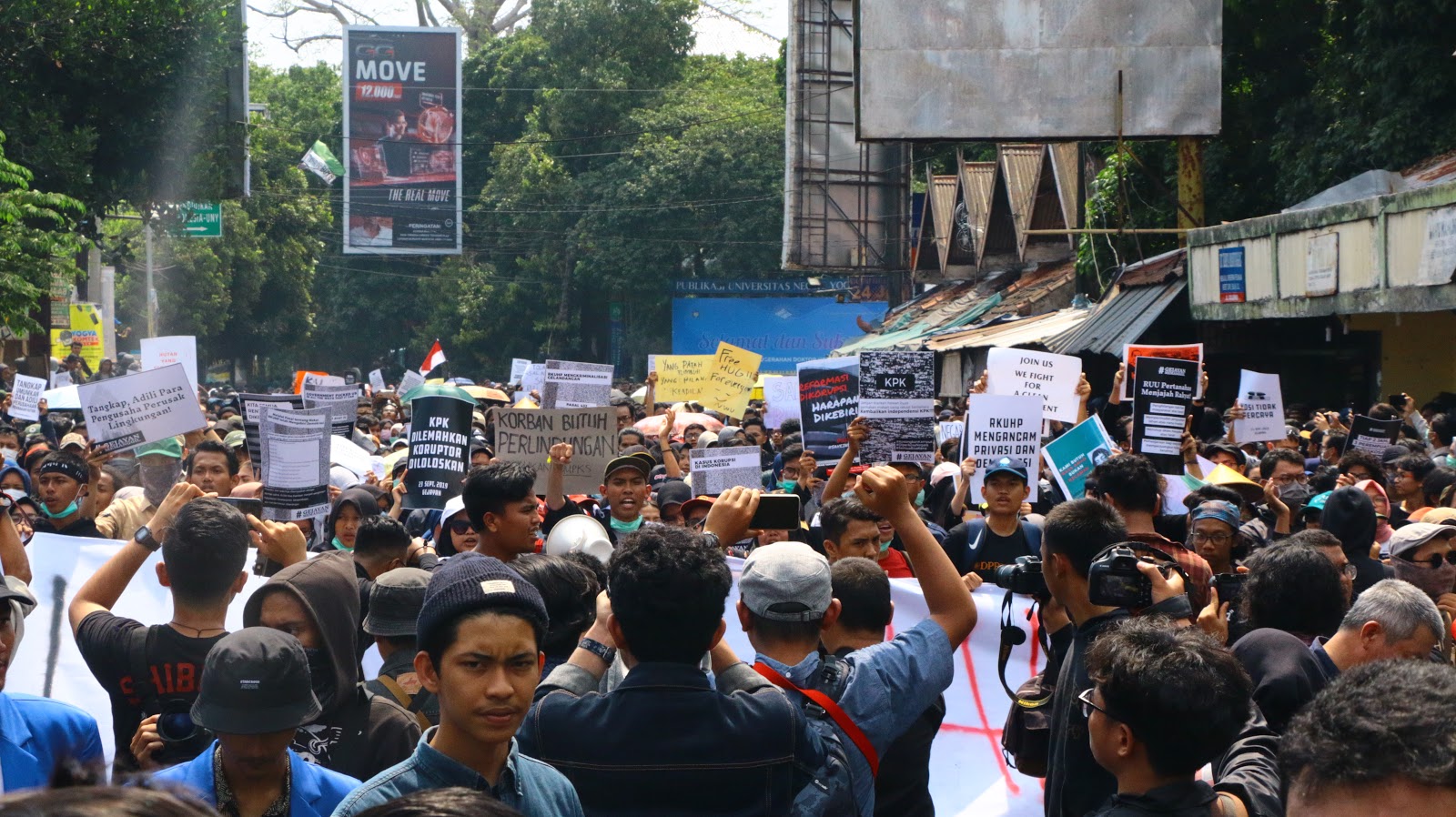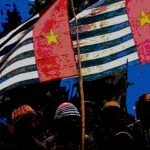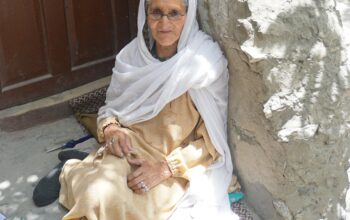Since mid-September, several protests have taken place in several cities in Indonesia due to current domestic political and social issues, including the controversial draft bill that is believed would threaten the freedom of the people within everyday life. A lot of the protests have turned violent. Both protesters and authorities have resorted to violence, resulting in numbers of injured protesters and some casualties. In Jogjakarta, university students, collaborating with civil society under the name of “Aliansi Rakyat Bergerak” (ARB) or Proggresive People Alliance, voice their opinions to preserve the democracy of the country peacefully. The nonviolent movement is named #GejayanMemanggil.
Gejayan as Jogjakarta’s Waterloo
Waterloo, Belgium, was the place where Napoleon Bonaparte-led French army was defeated by the Seventh Coalition; the coalition of the states who opposed Napoleon. This very place marked the end of Napoleon’s journey as the Emperor of France. In 1998, thousands of students from various universities in Jogjakarta fought for freedom by demanding the resignation of Soeharto, then dictator who had ruled the country for 31 years, on the street of Gejayan. Until now, this street has its own value of freedom and democracy, especially for those who are involved in activism.
In 2019, Gejayan was back on and #GejayanMemanggil, or #GejayanCalling in English, became a meeting point for those who had felt that the current government has threatened the freedom of the people on the 23rd and 30th of September.
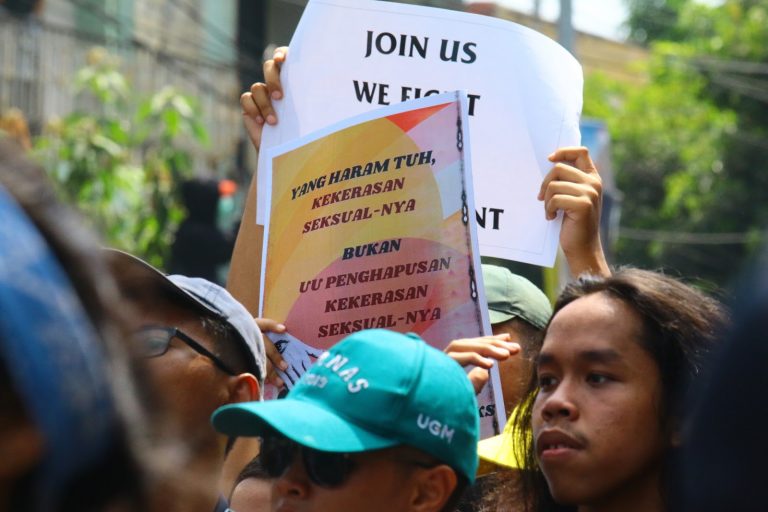
Prior to the first protest in 23rd of September 2019, Aliansi Rakyat Bergerak (ARB), had 7 specific demands against the government. The alliance rejects the controversial articles in (1) RKUHP or Draft Bill of the Indonesian Criminal Code (which consists of articles that may restrain the freedom of the people in various aspects such as prosecution for spreading Marxist teachings, having extramarital sex, or even insulting the President or Vice President); (2) Draft Bill of Employment (generally perceived as unfavorable for the workers); (3) Indonesian Land Law; and also the recent (4) UU KPK or the Law of Corruption Eradication Commission. The people believed that this latest law would weaken the Commission and provide a greater space for corruptors to do their work within the country. In addition, ARB also demands the government to (5) push the ratification of RUU-PKS, or the Draft Bill of the Abolishment of Sexual Violence with the aim to legally accommodate the victims of sexual violence, to make them feel better and safer. Lastly, the alliance demands the state to (6) investigate and prosecute the elites who are responsible for the environmental catastrophe within the country and (7) stop arresting activists trying to maintain the democratization process in Indonesia.
Currently, ARB has added some more demands towards the state; including pushing the state to stop any repression and criminalization against people’s struggle and open up democracy space in Papua by withdrawing the military and investigating the human rights violations in the area.
The Flower of the Partisan
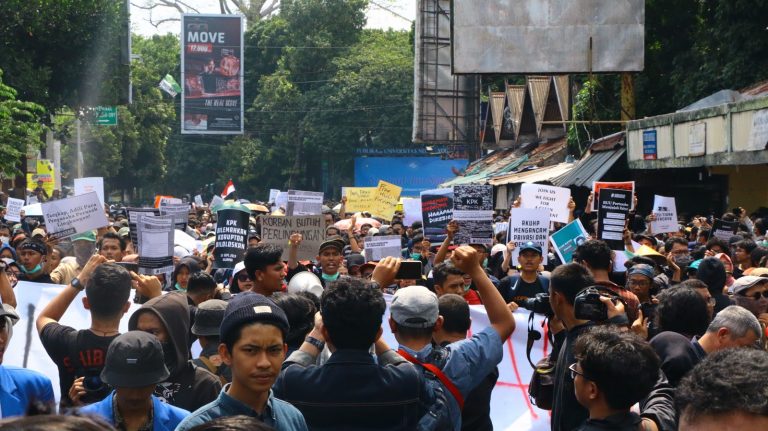
What’s unique with Aliansi Rakyat Bergerak-initiated #GejayanMemanggil is that this action completely adheres to nonviolent values. Quite similar with the rising popularity of global nonviolent protests and movements on many different issues, a lot of nonviolent methods were also used within this protest. During the first protest on the 23rd of September, the protesters first marched down from three different meeting points, located in three different universities, to the main meeting point: Gejayan.
Public speeches were held at the meeting point, followed by music performances, heating up the people to start singing. Among the protesters, a lot of slogans and symbols could be seen written on their banners, posters, and displayed communications they brought that day. In addition, leaflets and pamphlets were also distributed to the people, with the goal to make them fully aware that the current political situations is not in the best form.
The fact that this protest was completely nonviolent also lead to the appreciation from the residents within the surrounding areas. Some people from a fruit stand distributed free fruits to the protesters, and others gave free drinks to them. In fact, the local police department also respected and praised the protesters due to the fact that they could deliver the demands peacefully and orderly, leading to the absence of repression by the police. To emphasize this point, some of the protests in other cities have turned violent and resulted in a lot of injuries on both sides, including some casualties.
Weakened Pillars of Support
A lot of people have criticized the protest as it will only be “ridden” by opposition groups; especially the fans of the lost presidential candidate. The stigma is still widespread that criticizing the government means that you’re from the opposition groups. In fact, #GejayanMemanggil proved that the reality is not that black and white. The #GejayanMemanggil movement is a pure nonviolent action, without any political affiliation, consisting of people who felt the urgency to perform a “check and balance” on the government, but not to overthrow Jokowi as the legitimate president. The success to prevent any provocation and being ridden by any group, resulted in a more successful nonviolent action. In this very point, the government’s pillars of support have already started to cripple.
According to Popovic, rulers cannot rule by themselves due to the fact that they need people who provide such services to the rulers by doing certain tasks such as collecting taxes, preparing for the national budget, or even enforcing repressive laws. These group of people are called as the pillars of support, if the nonviolent movement able to make them withdraw their support, the opponent’s control will start to collapse. In the case of #GejayanMemanggil, it can be argued that there are three pillars of support that have started to withdraw their support for the opponent, in this case the government, they are: educational system consisting of students and teachers; the local community, especially the citizens; and the media.
In terms of the educational system, the teachers and students’ role is very important for the government. To emphasize this point, Popovic argued that the teachers shape the minds of the students while the students have the ideas and privilege as the role models of the society. Hence, they are arguably the ones that constitute the future of a country. Meanwhile, the media has a role to spread the messages from the students to a bigger scale of society. In this case, the media, especially students’ press and online newspapers, also helps the nonviolent movement to grow bigger by spreading the news and attracting more people to join the line.
Prior to the first action of #GejayanMemanggil, a lot of posters have been uploaded on Instagram to inform more people about the movement. Added to that, the coverage done by the media during the first action also contributed to the widespread of the messages. Lastly, the citizens within the local community also shows that they withdraw their support for the government as well as their consent from the government. The fact that a lot of Jogjakarta’s citizens decided to join the movement, not to mention those who help the protesters by giving fruits and drinks, shows that another pillar of support has started to crumble.
#GejayanMemanggil is not an “event” that took place only once or twice. Instead it is a continuous process. As for now, those who are involved are still preparing for a manifesto that consists of alternatives which, later, will be delivered to the government with the hope that the demands can be fulfilled. Several committees have also been founded in some universities, hence the spirit of resistance can be maintained. Lastly, the students will keep everyone’s spirits to fight for democratic rights so that the movement will not lose its momentum.
by Naufal Rasendriya Apta Raharema
Photo Credits
Muhammad Alvarizi Daffaakbar, All Rights Reserved
